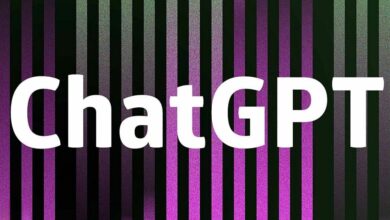United States First CTO: 6 Business Innovation Lessons
Most people do not associate innovation and the notion of a lean startup with government, but former Chief Technology Officer (CTO) of the United States, Aneesh Chopra shares his insights about data and how government data can be a force of positive change to enable the private sector for the benefit of everyone. Chopra served as the first Chief Technology Officer of the United States, appointed by President Barack Obama. Chopra previously served as Virginia’s fourth Secretary of Technology. As an assistant to the President, Chopra designed the National Wireless Initiative, helped launch Startup America, and executed an “open innovation” strategy across the government built on private sector collaboration – opening up data, convening on standards and staffing “lean government startups.”

Aneesh Chopra, (Twitter: @aneeshchopra) Former CTO of United States
Currently the co-founder of Hunch Analytics and author of the book, “Innovative State: How New Technologies can Transform Government”, Chopra is focused on how the country can tap entrepreneurial problem solvers to address challenges in health, energy and education markets among other public and regulated sectors.
Before leaving his position as the nation’s first CTO, he was asked by the President to prepare a final memorandum to summarize his key findings. Chopra created the Open Innovator’s Toolkit so that his lessons learned could be applied more broadly to inspire innovation in all levels of the government. It is Chopra’s hope that America return to an innovative state by taking advantage of newer technologies and releasing data sets in new and valuable ways.
6 business innovation lessons from United States first appointed CTO:
1. Close the innovation gap using lean startup principles – Chopra’s role as the first ever CTO for the U.S. was created to close the innovation gap between the public and private sector by advocating policies to grow the economy and solve some of the big challenges we face as a country. He worked to achieve this by focusing his effort on the creation of the Open Innovator’s Toolkit at the U.S. government level to be replicated across all areas of government. Applying the principles of The Lean Startup by Eric Ries, the Toolkit covers the four aspects that Chopra focused on in his role of CTO: moving beyond data “by request” to “computer-friendly by default;” engaging not just as “regulator” but as “impatient convener;” adding the ability to pay for outcomes through “prizes” not just “procurements;” and attracting “top talent” including “entrepreneurs-in-residence.”
2. Enable and promote public and private sector collaboration – As CTO, Chopra functioned first as an advisor to the President, giving policy advice to the President. He also was responsible for ensuring the execution of policies and promoting inter-agency cooperation. Last…



